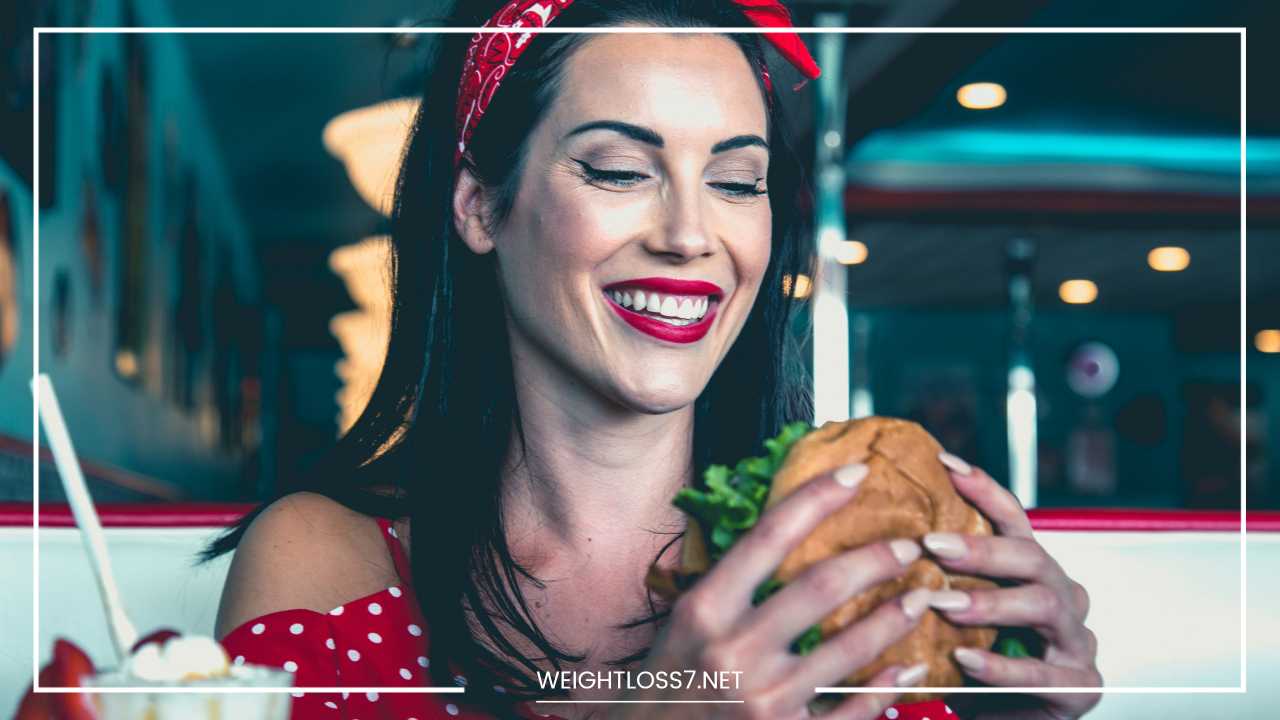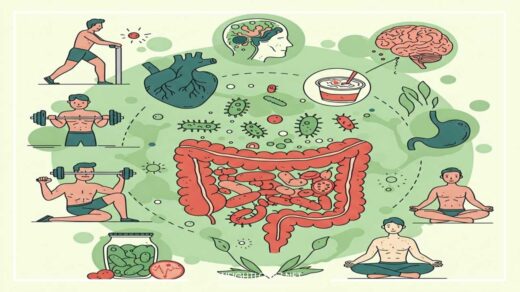Best Weight Loss Diet

Best Weight Loss Diet
The Path to a Lighter You: Embracing the Best Vegetarian Weight Loss Diet
In a world filled with flashy advertisements and one-size-fits-all diet plans, finding a healthy and sustainable path to weight loss can feel like navigating a maze. Many quick-fix solutions promise rapid results, only to leave you feeling frustrated, deprived, or worse—heavier than when you started.
But the truth is, long-term weight loss isn’t about restriction or temporary changes; it’s about creating a lifestyle that supports your goals and feels good in the process.
For those who choose a vegetarian way of living, the journey to a lighter, healthier body can be especially nourishing—both physically and emotionally.
A well-planned vegetarian diet, rich in whole, plant-based foods, can be a powerful tool for losing weight in a way that’s both enjoyable and sustainable.
Far from being about deprivation, the best vegetarian weight loss diet is about abundance—filling your plate with colorful vegetables, hearty grains, satisfying legumes, and vibrant fruits. Let’s explore how this lifestyle choice supports weight loss and how you can make it work for you.
Understanding the Fundamentals: Weight Loss and Vegetarianism
Before diving into specific food choices, it’s important to understand the basic science of weight loss. At its core, weight loss occurs when your body burns more calories than it consumes.
This calorie deficit encourages the body to use stored fat for energy. While physical activity contributes to the process, diet plays a larger role in creating this deficit.
Vegetarianism involves abstaining from meat, poultry, and fish. Within this framework, there are several variations:
- Lacto-ovo vegetarians consume dairy and eggs.
- Lacto vegetarians include dairy but not eggs.
- Vegans avoid all animal products entirely.
No matter the variation, a thoughtfully planned vegetarian diet can be extremely effective for weight loss, thanks to some key advantages.
Why Vegetarian Diets Work for Weight Loss
1. Lower Calorie Density
Many plant-based foods are naturally low in calories and high in volume, meaning you can eat satisfying portions without consuming excessive calories. Vegetables, fruits, whole grains, and legumes help you feel full while keeping your calorie intake in check.
2. High in Fiber
Fiber is your secret weapon when it comes to weight loss. Found in abundance in fruits, vegetables, legumes, seeds, and whole grains, fiber slows digestion and promotes fullness, helping you resist unnecessary snacking and overeating. It also helps stabilize blood sugar levels, reducing energy crashes and sugar cravings.
3. Nutrient-Dense Choices
A diverse vegetarian diet is rich in essential vitamins, minerals, and antioxidants. These nutrients are crucial for supporting your metabolism, energy levels, immune system, and overall health as you lose weight. When your body is nourished, it performs better—and weight loss becomes more manageable.
4. Reduced Saturated Fats
Plant-based diets tend to be lower in saturated fats, which are commonly found in meat and full-fat dairy products. Excess saturated fat intake is linked to weight gain and a higher risk of heart disease. Swapping animal fats for heart-healthy fats like those found in nuts, seeds, and avocados supports not only weight loss but also long-term cardiovascular health.
Creating a Balanced Vegetarian Weight Loss Plan
The key to success on a vegetarian weight loss diet is balance and variety. Focus on whole foods and limit highly processed vegetarian options, which can be surprisingly high in calories, sugars, and unhealthy fats.
Here’s what your plate should ideally include:
- Vegetables: Aim for a variety of colors to maximize nutrient intake.
- Fruits: Enjoy in moderation, particularly lower-sugar fruits like berries and apples.
- Whole Grains: Brown rice, quinoa, oats, and whole wheat provide long-lasting energy.
- Plant-Based Proteins: Lentils, beans, tofu, tempeh, and chickpeas help build muscle and promote satiety.
- Healthy Fats: Incorporate nuts, seeds, olive oil, and avocados in reasonable amounts.
Adopting a vegetarian diet for weight loss isn’t just about cutting calories—it’s about embracing a lifestyle that prioritizes health, nourishment, and mindfulness. With the right approach, you’ll not only see the number on the scale go down but also feel more energized, vibrant, and in tune with your body.
Let nature’s bounty guide you, and you’ll discover that the path to a lighter you can be both delicious and deeply rewarding.
Key Principles of an Effective Vegetarian Weight Loss Diet
A vegetarian diet can be a powerful ally in your weight loss journey—but like any eating pattern, its effectiveness depends on the quality of your food choices and your overall approach.
Just because a food is vegetarian doesn’t necessarily mean it’s healthy or conducive to weight loss. Highly processed vegetarian products can still be loaded with sugar, unhealthy fats, and excess calories.
To help you get the most out of your plant-based journey, here are ten essential principles to guide your vegetarian weight loss diet in a smart, sustainable way.
1. Prioritize Whole, Unprocessed Foods
The foundation of a successful vegetarian weight loss plan is whole, minimally processed foods. These include fresh fruits and vegetables, whole grains, legumes (beans, lentils, chickpeas), nuts, and seeds.
These foods are rich in nutrients and fiber, helping you feel full and satisfied. Try to limit your intake of processed vegetarian products such as faux meats, frozen dinners, chips, and pastries, which can be deceptively high in calories, sodium, and added sugars.
2. Embrace a Rainbow of Fruits and Vegetables
Each color in the plant kingdom represents a unique set of antioxidants and nutrients. By including a variety of colorful fruits and vegetables in your meals—like leafy greens, purple cabbage, red peppers, carrots, and berries—you’re ensuring your body receives a wide spectrum of vitamins, minerals, and phytonutrients. These compounds support overall health, reduce inflammation, and may even enhance fat metabolism.
3. Choose Whole Grains Over Refined Grains
Not all carbs are created equal. Whole grains like quinoa, brown rice, bulgur, oats, barley, and whole-wheat products are high in fiber and digest slowly, which helps stabilize blood sugar levels and keep you full for longer.
In contrast, refined grains such as white bread, white rice, and sugary cereals are stripped of fiber and nutrients, leading to blood sugar spikes and crashes that can trigger cravings.
4. Make Legumes Your Allies
Legumes are a vegetarian’s best friend. They’re loaded with plant-based protein, fiber, iron, and other important nutrients.
Including lentils, black beans, chickpeas, and peas in your daily meals provides long-lasting energy and helps keep hunger at bay. Plus, they’re extremely versatile—perfect for soups, stews, salads, curries, veggie burgers, or dips like hummus.
5. Don’t Fear Healthy Fats (in Moderation)
Healthy fats play a vital role in nutrient absorption, hormone production, and satiety. Incorporate sources like avocados, almonds, walnuts, chia seeds, flaxseeds, and olive oil into your meals.
However, because fats are calorie-dense, it’s important to enjoy them in moderation—stick to recommended serving sizes and be mindful of portion control.
6. Be Mindful of Portion Sizes
Even nutrient-rich foods can contribute to weight gain if consumed in large amounts. Listen to your body’s hunger and fullness cues, eat slowly, and avoid distracted eating. Using smaller plates and bowls can also help regulate portions visually. Practice mindful eating to build a healthy relationship with food and prevent overeating.
7. Stay Hydrated
Water plays a crucial role in weight loss and overall health. It aids digestion, supports metabolism, helps flush out toxins, and can even curb unnecessary snacking (often, we confuse thirst with hunger).
Aim for at least 8 glasses of water a day, and more if you’re active. Herbal teas and water-rich fruits like watermelon and cucumber can also help keep you hydrated.
8. Limit Added Sugars and Unhealthy Fats
Many processed vegetarian products contain hidden sugars and unhealthy fats. Watch out for sugary beverages, flavored yogurts, store-bought dressings, sauces, and snack bars.
Also, limit trans fats and overly processed oils often found in fried foods, packaged snacks, and commercial baked goods. These can sabotage your weight loss efforts and negatively affect your health.
9. Ensure Adequate Protein Intake
Protein is essential for maintaining muscle mass, keeping you full, and supporting your metabolism. As a vegetarian, you can meet your protein needs through diverse plant-based sources like lentils, black beans, tofu, tempeh, seitan, quinoa, edamame, and nut butters. Including a protein-rich food at every meal helps prevent muscle loss and keeps you feeling satisfied longer.
10. Consider a Multivitamin or Specific Supplements
While a vegetarian diet can be nutritionally complete, certain nutrients—such as vitamin B12, iron, omega-3s, and vitamin D—can be harder to obtain depending on your food choices.
A multivitamin or targeted supplements may help fill in any gaps. Always consult with a healthcare provider or registered dietitian before starting supplements to tailor them to your personal needs.
Building Your Vegetarian Weight Loss Meal Plan: A Practical Guide
Turning nutrition knowledge into daily practice starts with a well-balanced, thoughtful meal plan. A vegetarian diet offers incredible variety and flexibility, making it easy to craft meals that are both satisfying and supportive of your weight loss goals.
The key is to focus on nutrient-dense, whole foods that keep you full, energized, and excited to eat. Below is a sample structure to inspire your daily meals:
Breakfast Ideas: Start Strong
Fuel your day with fiber, protein, and healthy fats to prevent mid-morning hunger:
- Oatmeal topped with berries, chia seeds, and almonds – A fiber-rich, antioxidant-packed meal.
- Avocado toast on whole-grain bread with sliced tomato and a sprinkle of hemp seeds – Creamy, crunchy, and energizing.
- Tofu scramble with sautéed spinach and whole-grain toast – A savory, protein-packed start.
- Smoothie with spinach, banana, berries, plant-based protein, and unsweetened almond milk – Quick, refreshing, and nutrient-dense.
- Greek yogurt with granola and fresh fruit – High in protein and perfect if you include dairy in your diet.
Lunch Ideas: Light, But Satisfying
Aim for balanced meals with fiber, protein, and colorful veggies:
- Hearty salad with greens, roasted chickpeas, quinoa, and a lemon vinaigrette
- Lentil soup with a side of whole-grain bread
- Chickpea salad sandwich on whole-wheat bread with lettuce and tomato
- Quinoa bowl with black beans, corn, avocado, and salsa
- Leftovers from dinner – Reduce food waste and save time.
Dinner Ideas: Nourishing and Flavorful
Focus on fiber-rich carbs, plant proteins, and a variety of vegetables:
- Tofu or tempeh stir-fry with mixed veggies and brown rice
- Vegetarian chili with kidney beans and whole-grain cornbread
- Stuffed sweet potato with black beans, salsa, and avocado
- Vegetable curry with lentils served over quinoa or brown rice
- Homemade veggie pizza on whole-wheat crust with tomato sauce and grilled vegetables
Smart Snack Choices: Stay Fueled Between Meals
Keep snacks simple, nutrient-dense, and portion-controlled:
- Fresh fruit like apples, berries, or oranges
- Raw veggies with hummus
- A small handful of mixed nuts or seeds
- Air-popped popcorn with a dash of sea salt
- Rice cakes with avocado or nut butter
- Plain Greek yogurt with a drizzle of honey (if not vegan)
Sample Vegetarian Weekly Meal Plan (Example)
This flexible 7-day vegetarian meal plan is designed to support weight loss while providing variety, nutrition, and satisfaction. Feel free to swap in your favorite ingredients or adjust portion sizes to suit your individual needs and preferences.
Monday
- Breakfast: Oatmeal topped with fresh berries, almonds, and a sprinkle of flaxseeds – high in fiber and omega-3s.
- Snack: Apple slices with almond butter.
- Lunch: Large mixed salad with chickpeas, cucumber, cherry tomatoes, red onion, and lemon vinaigrette.
- Snack: Carrot sticks with hummus.
- Dinner: Hearty lentil soup with whole-wheat bread and a side of steamed broccoli.
Tuesday
- Breakfast: Whole-wheat toast topped with smashed avocado, sliced tomato, and hemp seeds.
- Snack: Greek yogurt with a few walnuts (use dairy-free yogurt if vegan).
- Lunch: Quinoa salad with black beans, corn, red bell pepper, lime juice, and cilantro.
- Snack: Air-popped popcorn with a dash of sea salt.
- Dinner: Stir-fried tofu with broccoli, carrots, and bell peppers over brown rice.
Wednesday
- Breakfast: Green smoothie with spinach, banana, almond milk, chia seeds, and vegan protein powder.
- Snack: A handful of mixed nuts.
- Lunch: Leftover tofu stir-fry.
- Snack: Cucumber slices with guacamole.
- Dinner: Baked sweet potato topped with black beans, avocado, salsa, and a side of sautéed kale.
Thursday
- Breakfast: Tofu scramble with onions, peppers, and turmeric, served with whole-grain toast.
- Snack: Orange slices or a small fruit salad.
- Lunch: Chickpea salad sandwich on whole-wheat bread with lettuce and tomato.
- Snack: Rice cakes with peanut butter.
- Dinner: Vegetable curry with chickpeas, cauliflower, and peas served over brown rice.
Friday
- Breakfast: Greek yogurt parfait with granola, mixed berries, and chia seeds.
- Snack: Baby carrots with hummus.
- Lunch: Salad with roasted sweet potatoes, arugula, quinoa, and balsamic vinaigrette.
- Snack: A few dark chocolate squares with almonds.
- Dinner: Homemade vegetarian pizza on a whole-wheat crust with mushrooms, onions, spinach, and bell peppers.
Saturday
- Breakfast: Whole-wheat pancakes with sliced strawberries and maple syrup (use egg-free recipe if vegan).
- Snack: Smoothie with frozen fruit and spinach.
- Lunch: Leftover vegetarian pizza and a side salad.
- Snack: Edamame sprinkled with sea salt.
- Dinner: Vegetarian chili with kidney beans, tomatoes, and bell peppers, served with whole-grain cornbread.
Sunday
- Breakfast: Overnight oats with chia seeds, almond milk, banana, and cinnamon.
- Snack: Handful of trail mix (unsweetened).
- Lunch: Hearty vegetable and white bean stew with whole-grain crackers.
- Snack: Sliced pear with tahini drizzle.
- Dinner: Vegetarian lasagna with layers of zucchini, spinach, marinara, and dairy-free cheese (or regular if not vegan).
Beyond Diet: The Importance of a Holistic Approach
While nutrition plays a vital role in weight loss, it’s only one piece of a much larger wellness puzzle. Sustainable, healthy weight loss—and overall well-being—requires a holistic approach that considers the interconnectedness of your physical, mental, and emotional health.
Embracing a well-rounded lifestyle not only enhances your weight loss results but also makes them more likely to last long term.
Here are the key pillars of a holistic weight loss strategy:
1. Regular Physical Activity
Exercise is essential not just for burning calories, but for boosting your mood, improving cardiovascular health, and preserving lean muscle mass. Aim for at least 150 minutes of moderate-intensity exercise per week (about 30 minutes most days).
This can include brisk walking, cycling, swimming, dancing, or hiking. Add strength training twice a week to build muscle, which increases your resting metabolic rate and helps your body burn more calories even at rest.
2. Quality Sleep
Sleep often gets overlooked, but it plays a critical role in weight regulation. Lack of sleep can disrupt hormones like ghrelin and leptin, which control hunger and satiety, leading to increased cravings and overeating.
Strive for 7 to 9 hours of restful sleep per night, and create a relaxing bedtime routine to improve sleep quality.
3. Stress Management
Chronic stress can lead to emotional eating and hormonal imbalances, particularly elevated cortisol levels, which are linked to fat accumulation—especially around the abdomen. Incorporate daily stress-relief practices such as:
- Yoga or gentle stretching
- Meditation or mindfulness breathing
- Journaling
- Spending time in nature
- Connecting with loved ones
4. Mindful Eating
Eating with intention and awareness can dramatically improve your relationship with food. Mindful eating helps prevent overeating by allowing you to tune into your body’s hunger and fullness signals. Try to:
- Eat slowly and chew thoroughly
- Avoid distractions like TV or smartphones during meals
- Savor each bite and notice flavors, textures, and how the food makes you feel
5. Consistency and Patience
Weight loss isn’t a race—it’s a journey. Results may not always come quickly, and that’s okay. Progress is rarely linear, but small, consistent efforts add up over time.
Celebrate non-scale victories, such as improved energy, better sleep, or sticking to your goals for a full week. Stay patient and kind to yourself through ups and downs.
Addressing Common Misconceptions About Vegetarian Weight Loss
When it comes to vegetarian diets and weight loss, there are several widespread myths that can lead to confusion or unrealistic expectations. Understanding the facts behind these misconceptions is crucial for building a healthy and effective plant-based lifestyle.
Myth #1: Vegetarians Don’t Get Enough Protein
Fact: It’s entirely possible to meet your protein needs on a vegetarian diet. A wide variety of plant-based foods are rich in protein, including lentils, chickpeas, black beans, tofu, tempeh, edamame, quinoa, nuts, seeds, and even vegetables like spinach and broccoli.
With a bit of planning and variety, vegetarians can easily consume adequate protein to support muscle maintenance and weight loss goals.
Myth #2: Vegetarian Diets Are Automatically Healthy and Promote Weight Loss
Fact: While vegetarian diets can be nutrient-rich, not all vegetarian foods are inherently healthy. It’s still possible to overeat calorie-dense foods like cheese, pasta, fried foods, and processed snacks.
Highly processed vegetarian products—such as mock meats, chips, or sugary baked goods—can be just as unhealthy as their non-vegetarian counterparts. Portion control, balanced meals, and whole food choices remain essential for weight loss.
Myth #3: You Need to Eat Meat to Lose Weight Effectively
Fact: Many studies have shown that well-balanced vegetarian and vegan diets can be equally, if not more, effective for weight loss compared to diets that include meat. Plant-based diets are typically higher in fiber and lower in calorie density, which can promote fullness and reduce overall calorie intake.
Sustainability and Long-Term Success
The key to lasting weight loss isn’t about rigid rules or quick fixes—it’s about building a lifestyle that feels good and is manageable over time.
A sustainable vegetarian diet should be enjoyable, flexible, and tailored to your tastes and needs. Focus on progress, not perfection.
Experiment with new ingredients, try simple homemade meals, and gradually shift your habits. Involve friends or family in your journey to create a supportive environment. With time, patience, and consistency, your healthy choices will become second nature—and the results will follow.
Final Thoughts: Embracing a Lighter, Healthier You with Vegetarianism
Choosing a vegetarian lifestyle for weight loss is more than just a dietary decision—it’s a commitment to nourishing your body, mind, and spirit.
By focusing on whole, unprocessed plant-based foods and incorporating a colorful variety of fruits, vegetables, legumes, whole grains, and healthy fats, you can achieve sustainable weight loss while enhancing your overall well-being.
Success doesn’t come from perfection, but from consistency, mindfulness, and self-compassion.
Remember, weight loss is not a race—it’s a journey that involves more than just what’s on your plate. Regular physical activity, quality sleep, and stress management all play vital roles in your progress.
Celebrate each step forward, no matter how small, and enjoy the abundance that vegetarian living has to offer. With patience and intention, you’ll find yourself not only lighter in body but brighter in energy, health, and happiness.

















